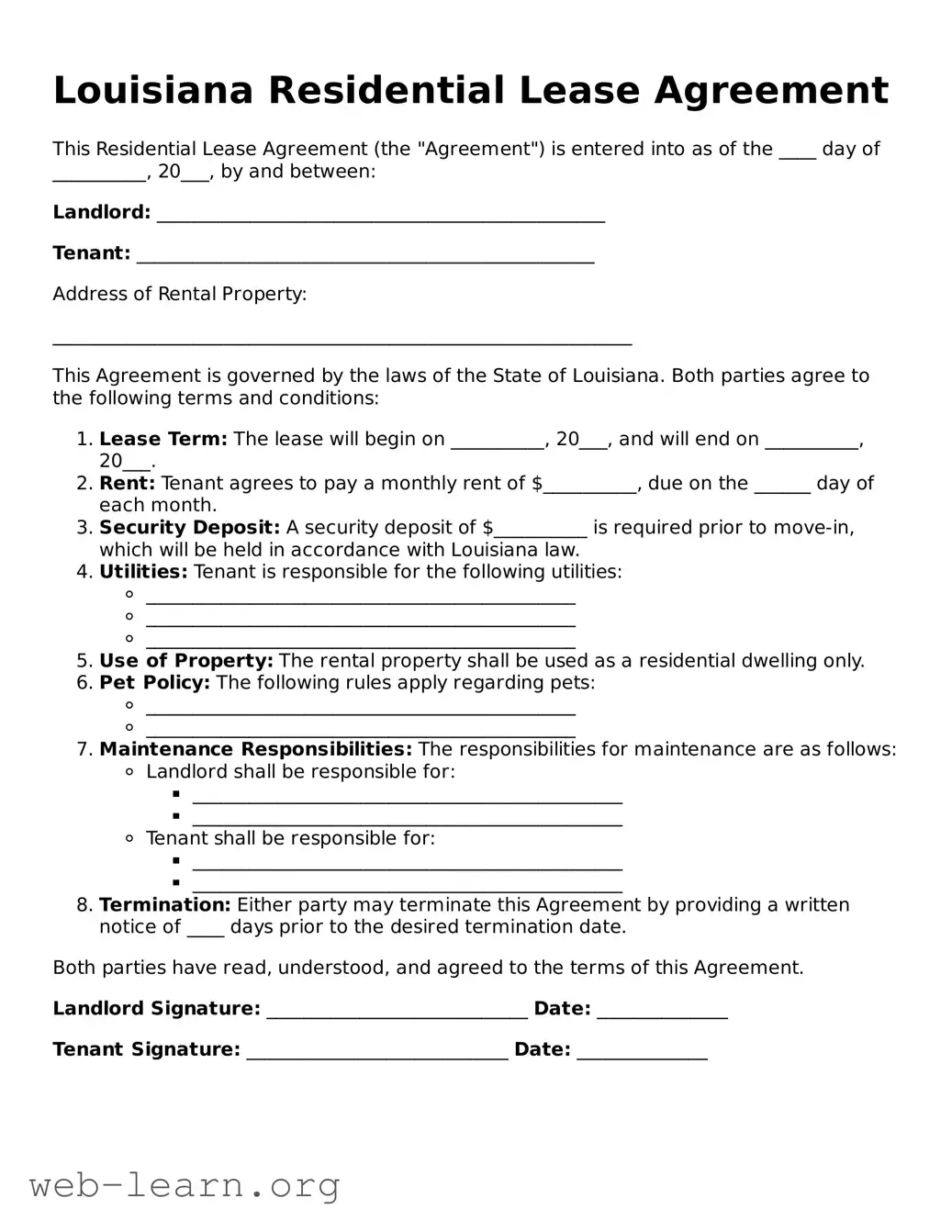Louisiana Residential Lease Agreement
This Residential Lease Agreement (the "Agreement") is entered into as of the ____ day of __________, 20___, by and between:
Landlord: ________________________________________________
Tenant: _________________________________________________
Address of Rental Property:
______________________________________________________________
This Agreement is governed by the laws of the State of Louisiana. Both parties agree to the following terms and conditions:
- Lease Term: The lease will begin on __________, 20___, and will end on __________, 20___.
- Rent: Tenant agrees to pay a monthly rent of $__________, due on the ______ day of each month.
- Security Deposit: A security deposit of $__________ is required prior to move-in, which will be held in accordance with Louisiana law.
- Utilities: Tenant is responsible for the following utilities:
- ______________________________________________
- ______________________________________________
- ______________________________________________
- Use of Property: The rental property shall be used as a residential dwelling only.
- Pet Policy: The following rules apply regarding pets:
- ______________________________________________
- ______________________________________________
- Maintenance Responsibilities: The responsibilities for maintenance are as follows:
- Landlord shall be responsible for:
- ______________________________________________
- ______________________________________________
- Tenant shall be responsible for:
- ______________________________________________
- ______________________________________________
- Termination: Either party may terminate this Agreement by providing a written notice of ____ days prior to the desired termination date.
Both parties have read, understood, and agreed to the terms of this Agreement.
Landlord Signature: ____________________________ Date: ______________
Tenant Signature: ____________________________ Date: ______________
